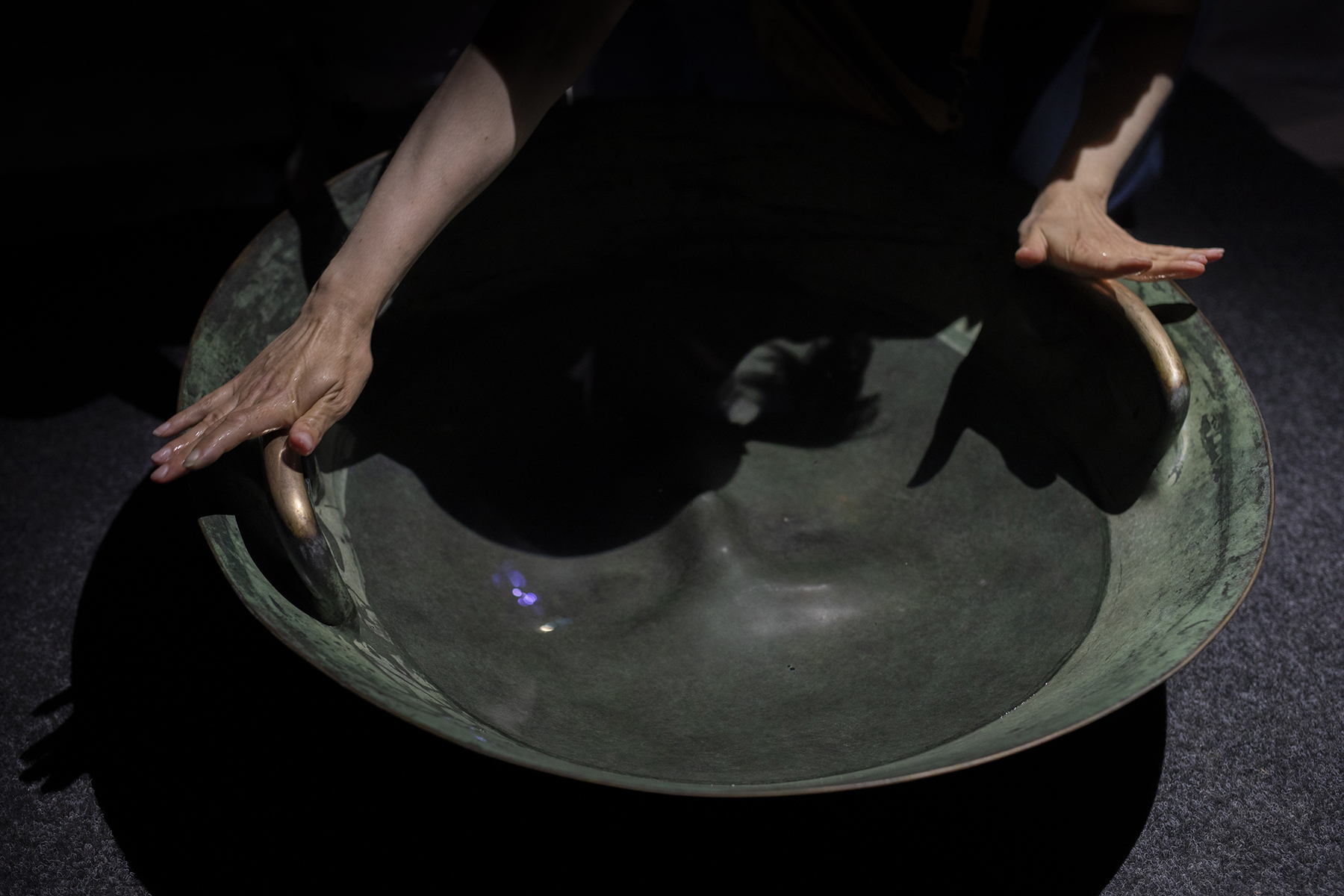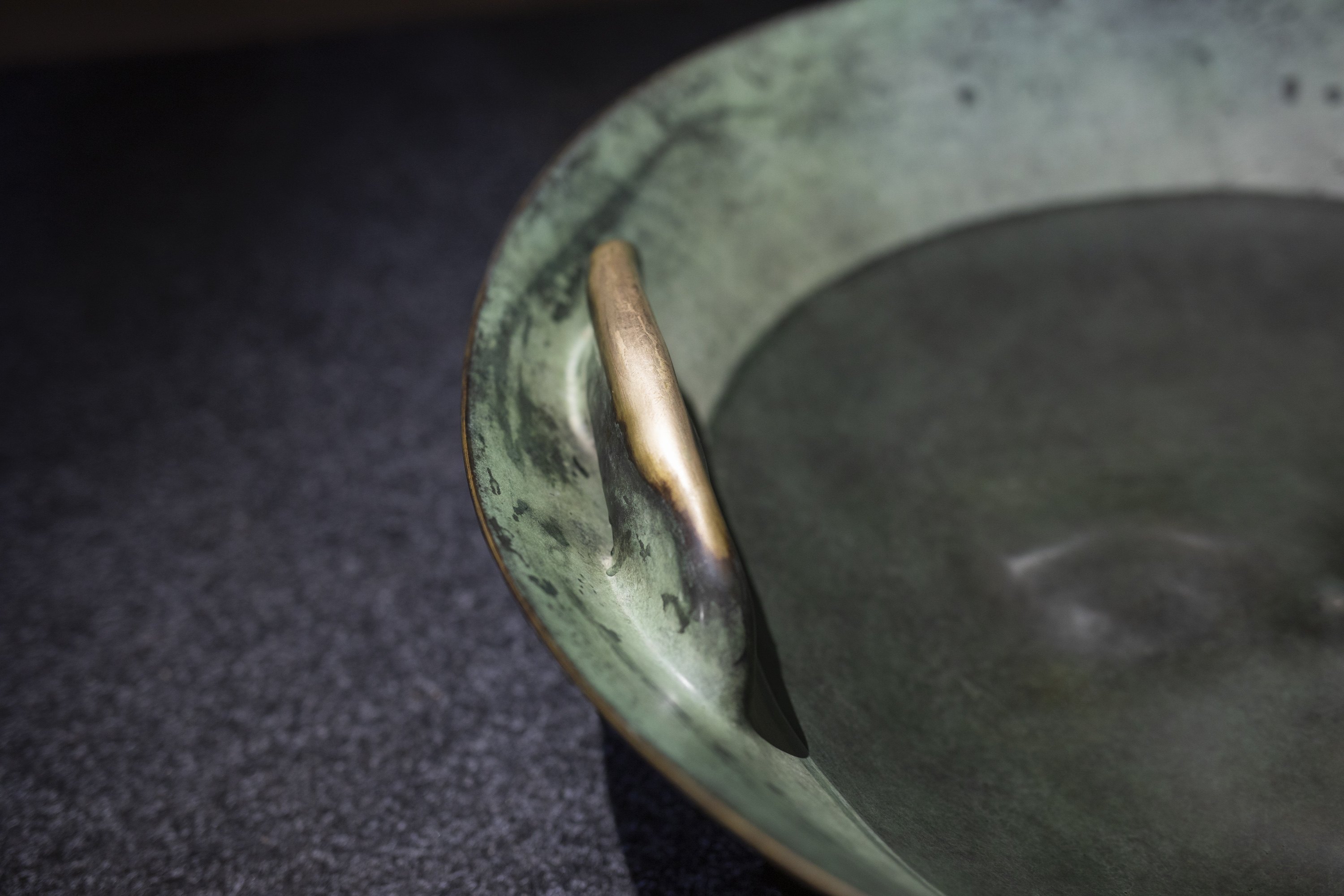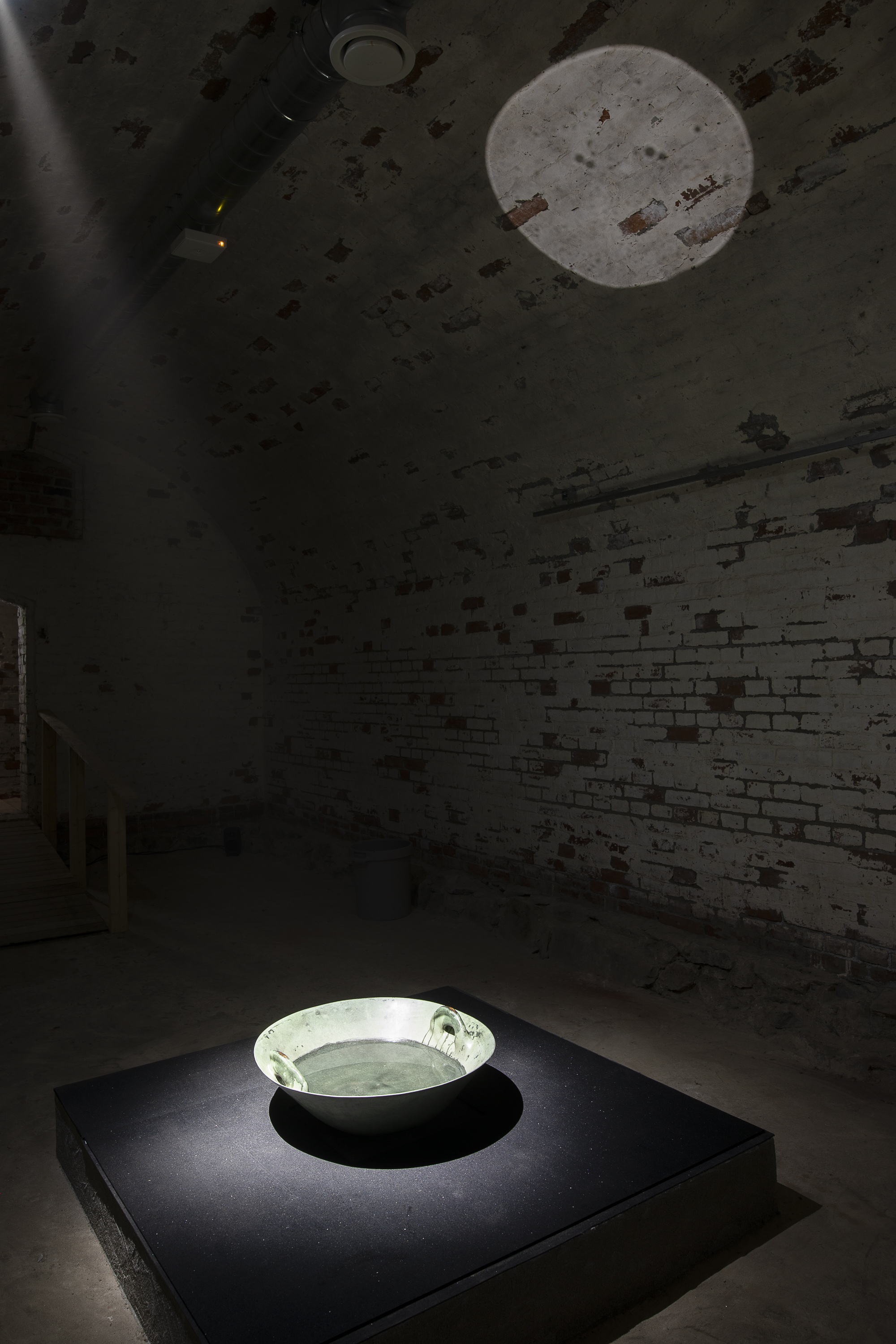Jenna Sutela is a Berlin-based artist who works with biological and computational systems – including the human microbiome and artificial neural networks – to create sculptures, images, and music. At the core of her practice is a renunciation of anthropocentric hierarchies and a shift toward decentralized forms of intelligence and organization.
For Helsinki Biennial 2023, Sutela presented Pond Brain, which consists of a water-filled bronze bowl expanding upon the shape of the artist’s own head. The instrument invites the viewer to rub it in order to make it ‘sing’. When played, it interacts with sound produced using machine learning technology to create an ever-emerging soundscape based on signals from the wider environment, including sounds from outer space and under the sea.
Pond Brain was produced in collaboration with Copenhagen Contemporary.
Hydrogen emerged in the Big Bang and oxygen in the cores of stars more massive than the Sun. Enormous amounts of water, in gaseous form, exist in the vast stellar nurseries of our galaxy. The origins of ponds are in the stars. A pond seems to say, “as above, so below,” turning its image of the world upside down.
The title of my artwork, Pond Brain, alludes to the ‘alt’ cybernetist Stafford Beer’s idea about a pond ecosystem as a homeostatic controller. Beer was looking at how ponds are better than computers at reconfiguring themselves when confronted with emergent, chaotic, and unpredictable phenomena. Like him, I am interested in systems open to the wider environment – a world made of brains.
Pond Brain is an instrument and a fountain: a bowl of rainwater made out of bronze that can be played or activated by touch (aka statue rubbing). The shape of the pond is reminiscent of a head. It is my neuroplastic portrait. In the spirit of a Chinese spouting bowl, or a German Wasserspringschale, interaction with the object not only produces musical vibration, but also creates patterns on the surface of the water inside it. As the sonic vibrations increase, water droplets start to bounce up from the surface.
Sounds from the pond resonate with an artificial neural network trained to respond to environmental and interplanetary sounds. The network tunes into sonic frequencies from the bowl and plays back an array of alien resonations. As sound flows around in homeostatic loops through the air and through different machine learning models, which exude an air of alternative dimensions, it is constantly transforming and thus exhibiting a life cycle of its own.
Jenna Sutela

Jenna Sutela: Pond Brain, 2023. © HAM/Helsinki Biennial/Sonja Hyytiäinen

Jenna Sutela: Pond Brain, 2023. © HAM/Helsinki Biennial/Sonja Hyytiäinen
Sutela’s work has been presented at museums and art contexts internationally, including Haus der Kunst, Munich (2022); Castello di Rivoli (2022); Kiasma Museum of Contemporary Art, Helsinki (2022); Shanghai Biennale (2021); Liverpool Biennial (2021); Kunsthall Trondheim (2020); Serpentine Galleries, London (2019); and Moderna Museet, Stockholm (2019). She was a Visiting Artist at The MIT Center for Art, Science & Technology (CAST) in 2019-21.
Jenna Sutela
Pond Brain
2023
Installation (bronze, water, sound, and light)
Working group: Victor Riley Shepardson, Vanda Skácalová, and Finley Stewart
Bronze casting at Bildgiesserei Hermann Noack, Berlin
Pond Brain is produced in collaboration with Copenhagen Contemporary.

Jenna Sutela: Pond Brain, 2023. © HAM/Helsinki Biennial/Kirsi Halkola